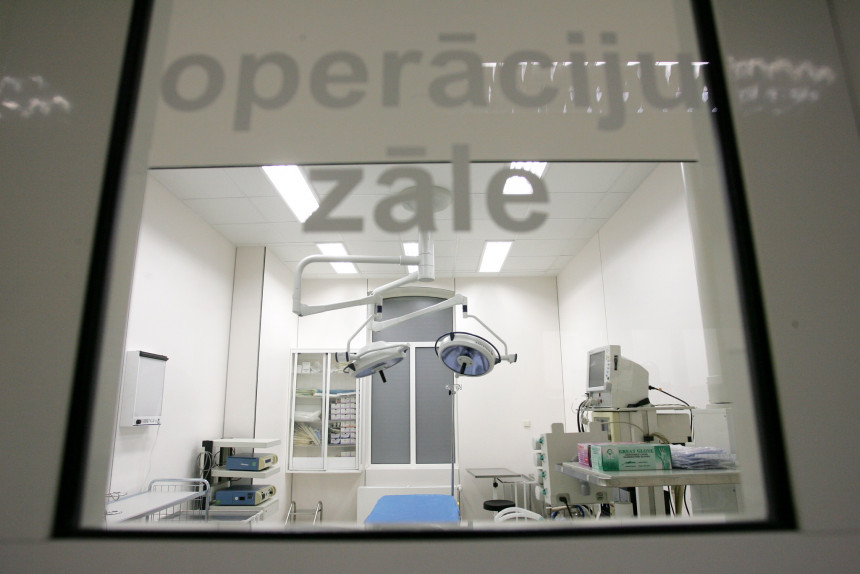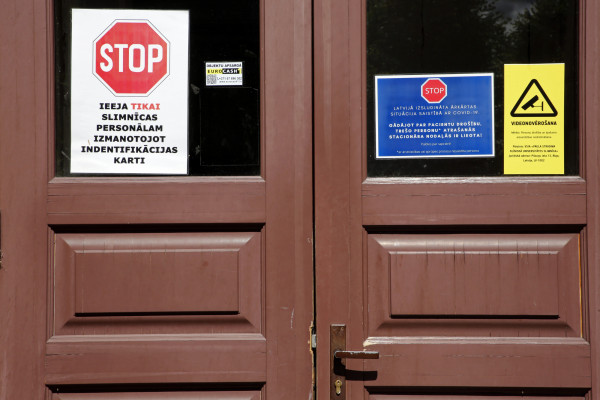Government decides to limit the work of hospitals

According to epidemiologists, the workload in hospitals will continue to increase due to Covid-19 patients, as approximately ten to fifteen percent of Covid-19 patients require hospital treatment.
In order to admit all Covid-19 patients and at the same time provide emergency medical care to other patients in acute situations, the government decided to limit scheduled health services to inpatients and day hospitals.
Statistics from the Center for Disease Prevention and Control show that there has been increase in both the number of people with Covid-19 (by 50 percent) and the number of inpatients with Covid-19 (by 32.6 percent) compared to the previous week. Approximately one-tenth of patients require hospital treatment, so as the number of Covid-19 patients increases, so will the number of inpatients. At present, 516 patients in moderate to severe stage are being treated in hospitals, and this number is increasing every day. The Ministry of Health explains that inpatient facilities must be ready to provide assistance to both Covid-19 patients and acute and emergency care to patients with other conditions, so hospitals will temporarily not provide planned assistance, as well as separate day hospital programs will be in place.
The possibility of restricting the work of hospitals throughout the country in order to devote all efforts to Covid-19 patients and continuous admission of acute patients with other diseases was discussed at the Ministry of Health already last week, but at that time the State Operational Medical Commission did not consider it necessary to push for such a decision, stating that the resource situation and the treatment of Covid-19 patients should be addressed by each treatment facility. This is also stated by the Ministry of Health, emphasizing that such a decision was taken at the same time as greater restrictions in all areas, so that "hospitals are more prepared even in the case of a rapid increase in the number of Covid-19 patients".
Restrictions are already in place
As of December 3, hospitals are obliged to restrict planned health care services provided in the inpatient care and day hospital. Many health services will not be interrupted - emergency medical and acute care will continue to be provided, including examinations and consultations. Outpatient health care services, including specialist consultations, will be provided in the previous amount. Also, oncological, life-saving, as well as operations where postponing may result in disability will not be canceled.

The Ministry of Health explains what services will remain in day hospitals. Services for patients with oncologic and other diseases will be maintained to ensure continuity of treatment - chemotherapy, biological drugs, organ replacement therapy; radiotherapy and day hospital services in hematology will not be discontinued. Substitution therapy rooms for drug addicts will continue to operate, namely methadone and buprenorphine programs. Inpatient care will be provided to patients who need to continue or complete inpatient emergency treatment. With restrictions, invasive cardiology and invasive radiology continue to work.
Hospitals will contact patients
The Ministry of Health has stipulated that each medical institution must contact the patient individually to inform if a service will be delayed. At the same time, these patients will not lose their queue and will be given priority when resuming specific services.
If, for example, a person, together with a family doctor, decides that some service is not currently needed, it is important to cancel the registration at the medical institution.
Despite the restrictions of the state of emergency, inpatient care will continue the provision of acute and emergency medical care, oncological, life-saving, as well as those operations, whose cancellation may result in disability. Medical care is maintained for certain groups of patients - oncology, HIV/AIDS, tuberculosis patients, psychiatry, patients with contagious skin diseases and sexually transmitted diseases, and traumatology. Patients in need of rehabilitation and for whom the postponement of these services may lead to a risk of disability or loss of ability to work will also receive medical services, including children for whom the postponement of rehabilitation services is associated with a significant functional deterioration. For more detailed information on state-paid health care services, the Ministry of Health urges people to contact the National Health Service by phone 80001234.
Stops medical tourism
The government has also decided to suspend the provision of health care services in the context of medical tourism until the end of the emergency. However, the Minister of Health will have the right to authorize the provision of these services in cases involving humanitarian considerations.
According to the information of the Health Inspectorate, more than 100 people from countries with a high incidence of Covid-19 enter Latvia every week for the purpose of medical tourism,
thus creating an additional risk for the spread of imported cases in the country. Also, the care of these patients requires additional resources of health care professionals, which are currently needed to provide health care services to the local population.
